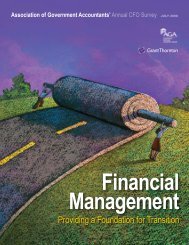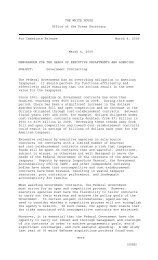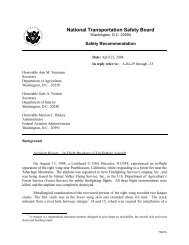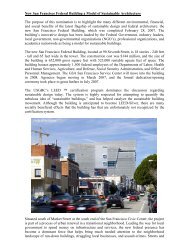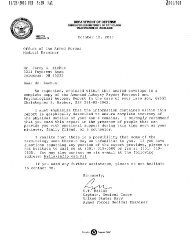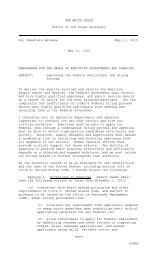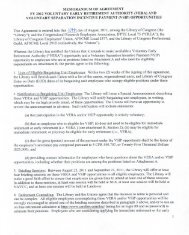Accenture's fifth annual global e-government study
Accenture's fifth annual global e-government study
Accenture's fifth annual global e-government study
Create successful ePaper yourself
Turn your PDF publications into a flip-book with our unique Google optimized e-Paper software.
2004 key findings<br />
during the past year. However, the country released<br />
a new strategy in February 2004 that demonstrates<br />
that the country plans to focus on developing a<br />
“coherent” public service (independent of legacy<br />
applications and individual suppliers and across<br />
public-sector boundaries). The strategy is fueled<br />
by a number of relevant and quantifiable goals.<br />
The United Kingdom and Ireland also made only<br />
minor progress from 2003 to 2004, although their<br />
slowdowns in growth were not as severe as some<br />
other countries. The United Kingdom lost one place<br />
in the rankings and Ireland remained the same.<br />
Again, the way these countries have hit a plateau<br />
shows the need to refocus priorities. Ireland’s longawaited<br />
Public Service Broker is expected to become<br />
the common framework for integrated services in<br />
the country. Once this fundamental enabler is in<br />
place, growth could take off once again. The United<br />
Kingdom’s online future is still unclear. It reached<br />
the peak of its growth several years ago and has<br />
slowed down since then while other countries continued<br />
to grow. This year, however, there will be a<br />
restructuring in the governance of the eGovernment<br />
program that potentially could bring a new strategy.<br />
The United Kingdom also seems to be ahead of<br />
many countries in its use of marketing. While these<br />
UK marketing efforts are primarily in response to<br />
late take-up of the Internet in general, applying the<br />
principles learned to eGovernment specifically could<br />
start paying dividends in terms of increases in takeup<br />
and satisfaction with eGovernment. (See page 16<br />
in the “Promoting take-up is taking hold, but the<br />
challenge remains” section for specific examples<br />
of how take-up already is improving in the<br />
United Kingdom.)<br />
“We believe in the decentralized model. The advantage is that as soon as<br />
the official agencies experience or apprehend a change in direction<br />
they’re free to adapt to it. I know that there have been objections, saying<br />
that we in Sweden have been a bit too decentralized; that it is a risk and<br />
potentially a waste. But I think it is mainly a strength.”<br />
—Gunnar Lund, Minister for International Economic Affairs and Financial Markets, Sweden<br />
10



